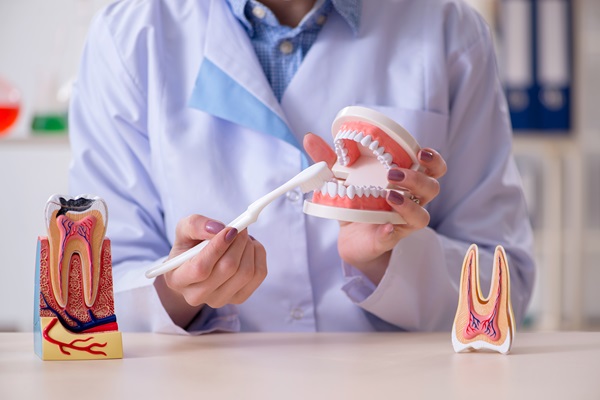 The decision to get dental implants is a big one, and one that can drastically change your life for the better. Dental implants offer substantial benefits over other tooth replacement options and can help prevent many of the adverse side effects of tooth loss. Because implants look and act like natural teeth and have the potential to last for a lifetime, they are becoming increasingly popular among tooth loss patients. That said, for implementation to be successful, you must prepare for the procedure accordingly.
The decision to get dental implants is a big one, and one that can drastically change your life for the better. Dental implants offer substantial benefits over other tooth replacement options and can help prevent many of the adverse side effects of tooth loss. Because implants look and act like natural teeth and have the potential to last for a lifetime, they are becoming increasingly popular among tooth loss patients. That said, for implementation to be successful, you must prepare for the procedure accordingly.
4 ways to prepare for dental implants
The dental implant process is a lengthy one that spans the course of six months to a year. Though the length of the process varies from patient to patient and depends on several unique factors, all patients should begin the process in the same way. The following four steps can increase the likelihood that your dental implants will be successful.
1. Get a comprehensive dental exam
Before you can begin the implant process, you must first determine if you are a good candidate for the procedure. Your dentist will perform a visual exam, take X-rays, and review your dental and medical records. If, after reviewing your oral health, your dentist determines you make a strong implants candidate, he or she will work with you to develop a plan and inform you of what to expect at each stage of the process. Your dentist may also go over the costs of the procedure with you and explore payment options.
2. Begin a course of antibiotics
In many cases, dentists recommend that future implant patients begin a course of antibiotics in the days leading up to the procedure. Antibiotics act as a substitute immune system and help to prevent implant failure. They do this by preventing the body from attacking the implants, which are, for all intents and purposes, foreign bodies and a perceived threat. Dentists recommend antibiotics for most implant patients. However, taking antibiotics is a particularly important step for people with chronic health conditions.
3. Prepare your jaw and body
If your jawbone is weak, or if you have existing oral health issues, you may have to undergo bone grafting and other procedures to strengthen your jawbone and prepare it for implants. If you do not properly prepare your jaw, there is a high likelihood that your implants will fail. Patients must typically wait several months after a bone graft to begin the implant process.
In the 24 hours before your surgery, you will have to prepare your body. You may need to fast for between 12 to 24 hours before your appointment time.
4. Prepare for your aftercare
How you care for your implants post-surgery also affects their success. Ideally, you will clear your schedule on the day before and the day of your surgery. You should also plan to take one week off from your normal activities, including work and exercise. If possible, recruit people to help you around the house for two to three days following the procedure. Finally, schedule a follow-up visit with your dentist before the day of the surgery.
Conclusion
Dental implants can greatly affect your oral health and overall quality of life. Preparing above according to the above steps may help set you up for success.
Request an appointment or call Dr. Rolando Cibischino at 201-204-1355 for an appointment in our Hackensack office.
Recent Posts
The teeth are an essential part of the human body, which is why so many people turn to dental implants. Without enough teeth, it is harder for people to bite into and chew their food and harder to enunciate certain words when speaking. When many teeth are missing, the shape of the face will change,…
Dental implants are an option for people who need to replace one or more missing teeth. The process involves several steps during which a metal post is surgically mounted into the jaw. The replacement tooth or crown is then secured to the implant, holding the new tooth firmly in place.Missing teeth can have an adverse…
According to the American College of Prosthodontists, more than 120 million Americans are missing one or more teeth. Dental implants are a common treatment method and are becoming increasingly popular. Implants are a permanent solution to missing teeth and help to restore the functionality needed for proper biting, chewing, and even speaking. A potential recipient…


